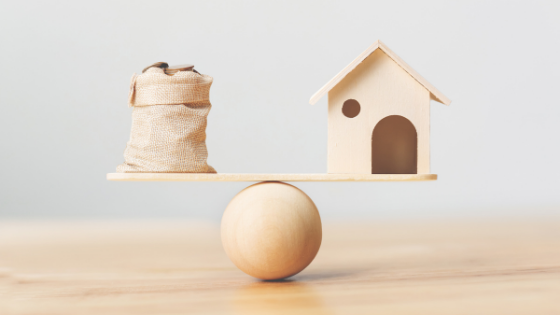If you are going to move soon and you sell your owner-occupied home, you may have to deal with the additional loan scheme (in Dutch: bijleenregeling). This arrangement may affect the net housing costs of your new home. How this works will be explained in the following article.
The scheme was introduced on 1 January 2004, as the surplus value was not always used for the purchase of a new home. This was not seen as fair and desirable by the Dutch government. In Article 3.119aa of the Income Tax Act 2001 the legal basis of this regulation is laid down.
The additional loan scheme applies if you sell your home and the proceeds exceed the existing home acquisition debt. If that is the case, speak of a so-called positive alienation balance in such a situation. This is based on the net income of the house sold. Selling costs, such as engaging a good broker, maintenance costs and energylabel may not be taken into account.
The difference of the above amounts is the equity. When you take out a mortgage for a new home, you may only deduct the mortgage interest on the purchase price of the new home minus the equity. This encourages you to put the profit in your new home.
An example: do not put part of the equity in the new home
Suppose you buy a house for € 350,000. And the equity from the previous home is € 25,000. In that case, you may deduct the mortgage interest on a maximum loan of € 325,000 (€ 350,000 – € 25,000). Do you borrow more than € 325,000? In that case, you are not allowed to deduct mortgage interest on the amount above that € 325,000 and this falls into Box 3.
Three common situations
More scenarios are conceivable. The following three scenarios are most common, so we’ll discuss them now:
- You will live more expensively
It is usually wise to reduce the new home acquisition debt with the equity. If you do not do this, part of the mortgage will fall into Box 3 as a result of the additional loan scheme. As a result, there is less tax advantage and the ultimate net monthly costs are higher. - You will live cheaper
The home acquisition debt is a maximum of the purchase price of the new owner-occupied home less the equity. - Don’t buy a new home
It is possible that after the sale you will start renting or go abroad for a certain period of time. The surplus value will then remain in existence for another three years under the name ‘home equity reserve’. Before 2010, this was five years. This means that the rules of the first and second scenarios will continue to apply for a period of three years. Then you can decide for yourself what you want to do with the equity of your home and so indicate your own destination, e.g. a beautiful car or world trip.
Use the current home not yet sold to the surplus value anyway
Do you already want to buy a new house, but is your own house still for sale or not even for sale at all? Then you can already use your equity for your new home with a bridging mortgage. Sounds too good to be true, but it is possible!
Bypass the loan scheme?
If you have equity, it will be added to your owner-occupied home reserve. This expires after 3 years. Is the reserve made up of different parts? For example, because you have sold your own home more often in a relatively short period of time? Then each separate part expires after 3 years.
Will you buy a new home within 3 years? Then your owner-occupied home reserve reduces the max mortgage on which you may deduct interest. In other words: you will then still have to contribute the equity. After 3 years – in which you, for example, rent a house or live abroad – this obligation lapses and you can fully finance a purchased house again, with mortgage interest deduction.
Additional loan arrangement can be complicated
The tax benefits of the additional loan scheme can be calculated using the Rekenhulp Bijleenregeling of the Dutch Tax Authorities. However, many scenarios are conceivable in which the calculation will quickly become complex and advice from an expert is advisable. It is therefore certainly smart to start a conversation with an experienced financial advisor. At Bliss, an advisor can help explain the scheme and how this can work out for your personal situation, and then also find the best mortgage for you.
Bliss is happy to help you in your search for the best possible way to finance your next dream home. Make a free appointment to discuss the impact on the net housing costs of the scheme, options and all your questions with an independent mortgage advisor.
Free Intake Call
Bliss Mortgage Advisers offers you a free intake interview.
- Free Intake
- Available 7 days a week
- Economical and fixed rates
- National quality network







